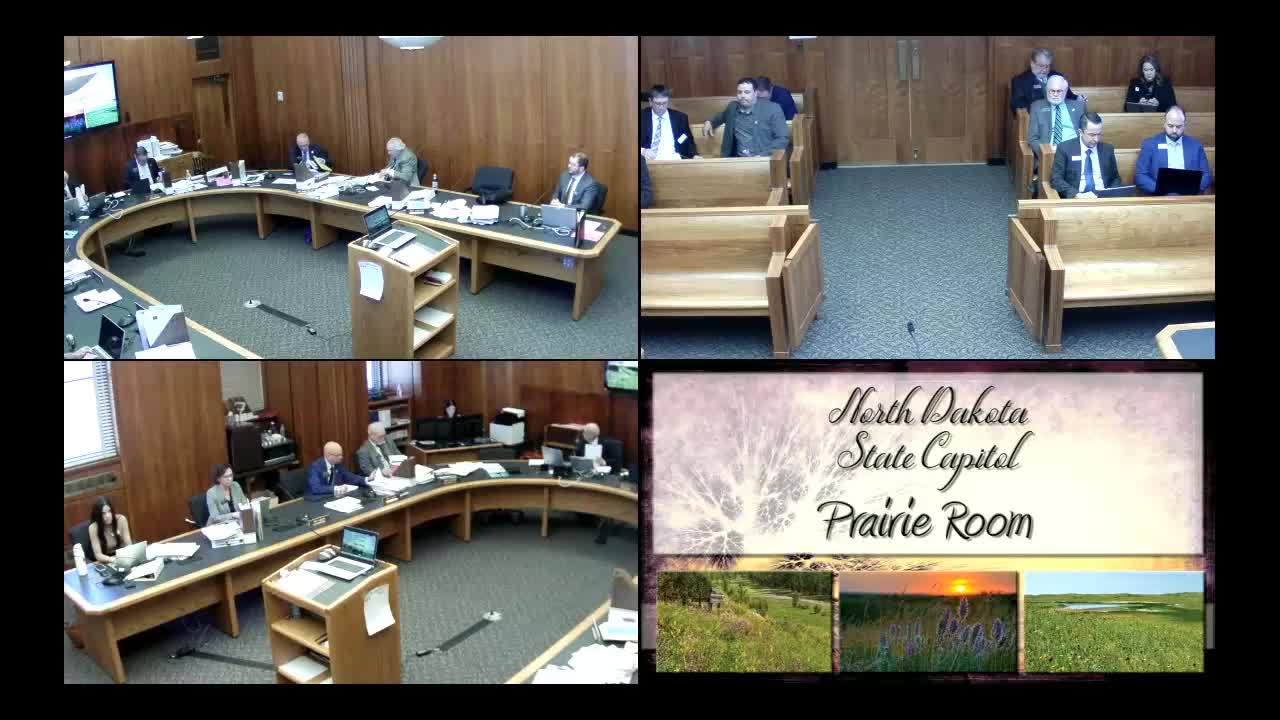Appropriations committee strips $3M from higher‑ed ERP, removes student pregnancy grant and shifts funds to workforce innovation
Get AI-powered insights, summaries, and transcripts
Subscribe
Summary
The House Appropriations Committee's Education and Environment Division on April 9 voted to remove $3 million for an enterprise resource planning project in the higher education budget, struck a proposed grant for pregnant or recently postpartum students, and approved restoring $3 million to workforce education innovation grants.
The Appropriations Committee's Education and Environment Division voted on April 9 to remove $3,000,000 earmarked for an enterprise resource planning (ERP) effort in the higher education budget, strike a proposed grant program for pregnant or recently postpartum students, and reallocate $3,000,000 to workforce education innovation grants, committee records and roll calls show.
The actions came during the committee's session to reconcile house and senate long sheets for higher education and the commerce budget. Chairman Nathie opened the meeting and led roll calls as members debated targeted changes, including several line items tied to workforce programs and one-time economic development funding.
The $3,000,000 ERP removal was proposed by Representative Swiatek. "Mr. Chairman, I move that we remove, the 3,000,000 from the enterprise resource planning," Swiatek said during the meeting. Representative Lausser seconded the motion. On a roll call the motion passed 4-1 (one member recused), moving the line out of the higher education section.
The committee also considered a proposed $2,000,000 grant program to support students who are currently pregnant or recently gave birth. Representative Lausser moved to strike the section; the motion carried on a roll call after a brief discussion, with the clerk recording a majority in favor and one member opposed.
After removing those items, Representative Richter offered an amendment to move $3,000,000 from funds that had been removed back into the workforce education innovative grants, increasing that line from $9,000,000 up to $12,000,000. Richter described a process in which the university system would form a committee and then solicit proposals from campuses. He said the additional dollars would be directed to that competitive grant process for workforce-oriented programs. Representative Hansen seconded Richter's motion; the amendment passed on a recorded vote, 5-0.
Committee staff and agency witnesses provided context. Chris Shelton, commissioner of the Department of Commerce, described parallel work on workforce strategy and data: the department has contracted Deloitte for a workforce study that is expected to be finalized in the coming weeks and said the department supports language to coordinate workforce programs across agencies.
Members also discussed several other higher‑ed and commerce items without final committee votes, including: - A proposal discussed for the State School of Science in Wahpeton to acquire the Nineteenth Avenue building in Fargo, initially described as a $5,600,000 purchase with conditions such as asbestos review and a $100,000 parking-lot maintenance reduction; the motion was withdrawn to allow further study. - A proposed $50,000,000 state match to a $50,000,000 private fundraising challenge for the Theodore Roosevelt Presidential Library endowment, with suggested funding sources split between the State Investment Fund (SIF) and Bank of North Dakota profits; members signaled this item would receive more attention during later floor work. - Commerce budget adjustments including restoration of one workforce FTE, increases in tourism marketing and other one-time economic development grants, and language to enable commercialization discussions for the VANTAS test-site technology.
Chairman Nathie said the committee would return to higher education later in the day after completing review of the commerce long sheet and would carry several items to floor debate and subsequent sessions.
Votes at a glance: - Motion to reconsider Senate Bill 2003: Passed (voice vote). - Remove $3,000,000 for higher-education enterprise resource planning: Moved by Representative Swiatek; second Lausser. Roll-call result: 4 yes, 1 no; Representative Martinson recorded a recusal. Outcome: passed. - Strike section establishing a $2,000,000 grant program for pregnant or recently postpartum students: Moved by Representative Lausser; seconded (Hansen). Roll-call result recorded as majority yes, one no (Sanford). Outcome: passed (section struck). - Amendment to add $3,000,000 to Workforce Education Innovative Grants (raising the line from $9,000,000 to $12,000,000): Moved by Representative Richter; seconded Hansen. Roll-call result: 5-0. Outcome: passed. - Remove $100,000 infrastructure study line (Grand Forks site study): Committee agreed to remove the $100,000 study and leave the section language; no formal negative action recorded beyond that note.
Why it matters: The committee's amendments alter funding priorities for higher education IT modernization and workforce education programming ahead of floor negotiations. Removing the ERP appropriation delays higher-education funding for that centralized IT effort while increasing competitive grants for workforce initiatives. Striking the pregnancy support grant removes a targeted support proposal and will require any future effort on that subject to be reintroduced.
The meeting record shows the committee intends to continue work later in the day and on the floor; several items discussed but not finally disposed of will return for additional debate.
